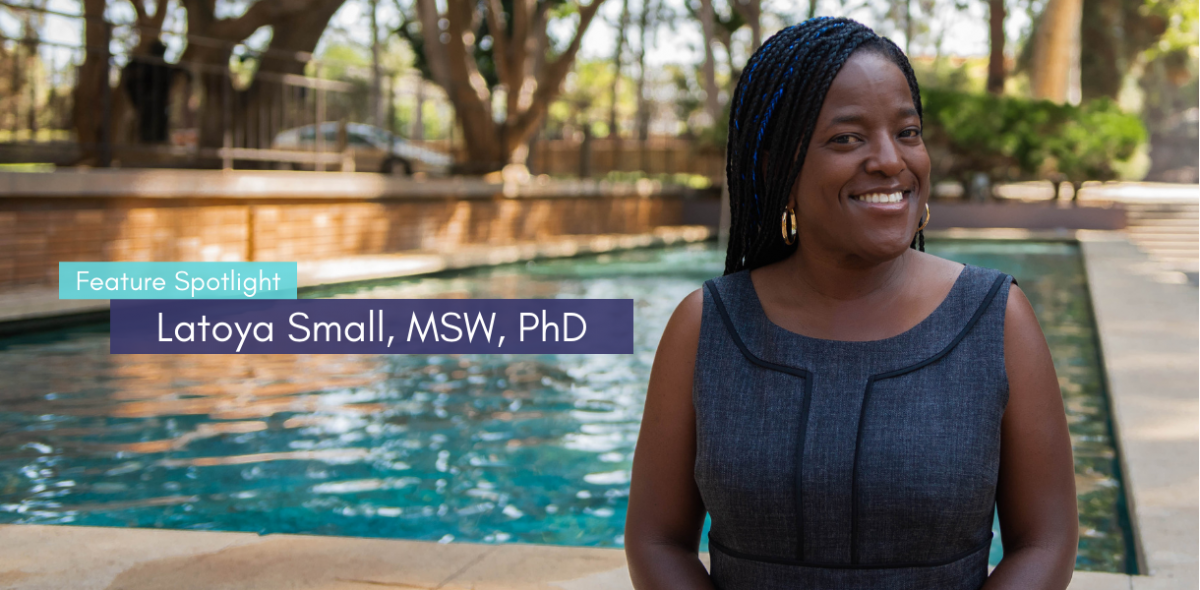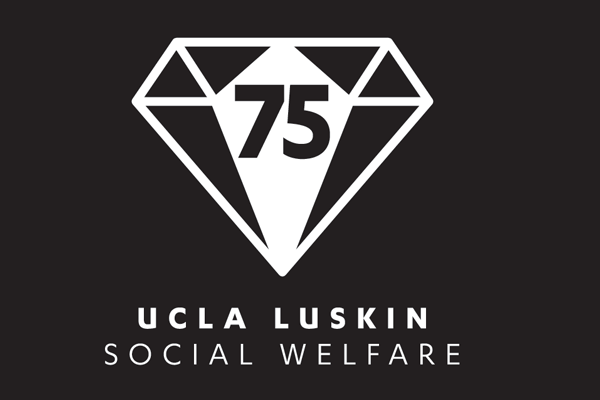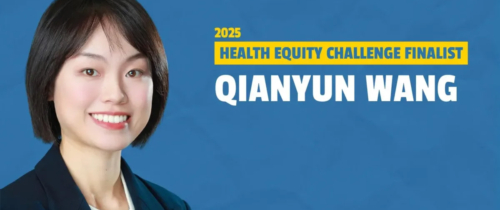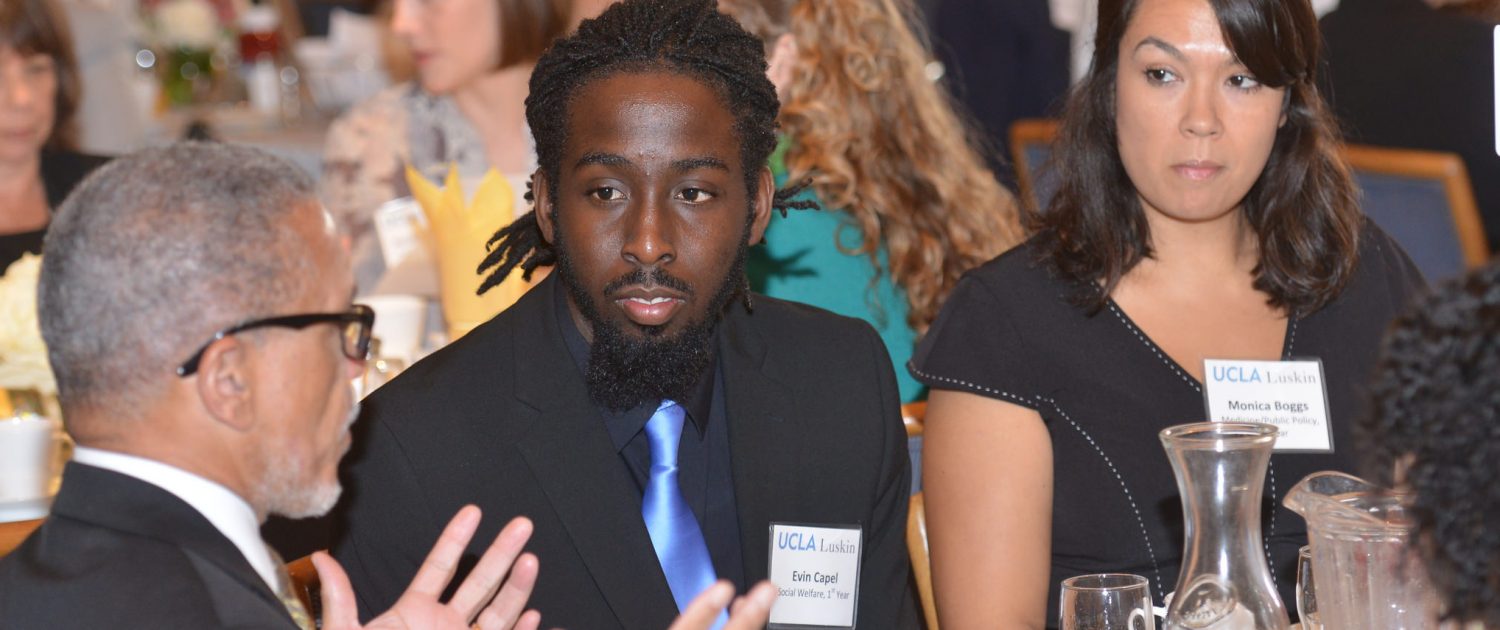75 years of community partnerships
The study of social work got its start at UCLA in 1947. Seventy-five years later, the Department of Social Welfare remains committed to enhancing human well-being and promoting social and economic justice for disadvantaged populations.
Throughout the 2022-23 academic year, we invite you to join UCLA Luskin Social Welfare at a series of events marking three-quarters-of-a-century of making a difference in Los Angeles and cities around the world.
The UCLA Department of Social Welfare offers the Master of Social Welfare (MSW) and a Ph.D. in Social Welfare. Joint degrees offer an even broader range of skill and expertise development. An undergraduate B.A. in Public Affairs, Minor in Public Affairs, and Minor in Gerontology are also available.
The UCLA Department of Social Welfare’s research and teaching guide policy makers, shape practice and programs in such areas as welfare, aging, health care, mental health, children and families, and long-term support. UCLA Social Welfare faculty members are committed to placing their knowledge at the service of communities and empowering the disadvantaged and the vulnerable.
Academic Programs
The Master of Social Welfare is a two-year period of full-time study program (6 quarters) merging theory, leadership, and research with generalist and specialized practicums of practice. Our curriculum is comprised of coursework and two separate year-long field placement components with social work agencies that allows our students to actualize what they are learning in the classroom, providing holistic, integrated experiences.
The Ph.D. in Social Welfare is a national leader in educating the next generation of social welfare scholars. Whether your interest is in service delivery or scholarly research, you will design your own advanced education aimed at pursuing your own intellectual interests.
The B.A. in Public Affairs offers an in-depth and engaged educational experience with a clear public service ethos. Drawing from UCLA Luskin’s expansive resources in Public Policy, Social Welfare, and Urban Planning, the major combines critical thinking, social science methodology, and experiential learning, connecting the dots between theory and action. The Minor in Public Affairs teaches students the skills of policy analysis and exposes them to the many issues facing today’s policymakers and opinion leaders. The Minor in Gerontology is an interdisciplinary program which utilizes UCLA’s professional schools and College resources to create an enhanced academic experience in aging.
Three-year Option: As of fall 2021, a three-year period part-time program (8 quarters or 9 quarters with Pupil Personnel Services Credential) is available as an option for students interested in the Child and Family Well-Being area of concentration. Students in this program take classes in the mornings and work with their practicum agencies to complete their required internship hours over the course of their academic program. Please note that this is not an evening and weekend program; classes and an internship will be scheduled during regular business hours.
Concurrent Degree Programs include four joint graduate degrees: Social Welfare MSW / Asian American Studies MA; Social Welfare MSW / Law JD; Social Welfare MSW/Public Health MPH, and Social Welfare MSW / Public Policy MPP.
International Study Opportunities include summer programs, internships, international/comparative planning workshops and international exchange agreements.
Visitor Programs attract and highlight visiting scholars, post-doctoral and graduate researchers, international professionals and trend-setting work by students at other institutions.
International related courses are also available to our students.
Certificates, Licensure and Training Programs
Board of Behavioral Sciences (BBS) Licensure, Global Public Affairs Certificate, Human Services Management Certificate, Mental Health Training Programs, Public Child Welfare Training Programs, Pupil Personnel Services Credential (PPSC)
CSWE Accreditation
As a program accredited by the Council on Social Work Education, our MSW program measures and reports student learning outcomes. Click the link below for the most recent data, which is updated every two years.
News
David C. Turner III Receives 2025 Marie O. Weil Best Article Award Award recognizes Turner’s research on the lived experiences of Black youth and systems of punishment.
Award recognizes Turner’s research on the lived experiences of Black youth and systems of punishment.
UCLA Luskin Doctoral Student is Finalist in UCLA Health Equity Challenge Qianyun Wang is one of 15 finalists turning ideas into action in the 2025 competition.
Qianyun Wang is one of 15 finalists turning ideas into action in the 2025 competition.
In Memoriam: James Duncan Lindsey The UCLA Luskin Social Welfare professor emeritus was a pioneering scholar of child welfare.
The UCLA Luskin Social Welfare professor emeritus was a pioneering scholar of child welfare.
 Latoya Small is one of several recent additions to the outstanding Social Welfare faculty. Find out more about Small and her research in a recent profile by the Center for HIV Identification, Prevention and Treatment Services.
Latoya Small is one of several recent additions to the outstanding Social Welfare faculty. Find out more about Small and her research in a recent profile by the Center for HIV Identification, Prevention and Treatment Services.
Why Study Social Welfare at UCLA?
The UCLA Department of Social Welfare’s research and teaching guide policy makers, shape practice and programs in such areas as welfare, aging, health care, mental health, children and families, and long-term support. UCLA Social Welfare faculty members are committed to placing their knowledge at the service of communities and empowering the disadvantaged and the vulnerable.
Students in our programs come from a wide variety of backgrounds and are attracted to the diversity and vitality of Los Angeles from across the country and around the world. They represent a broad range of undergraduate degrees including psychology, sociology, social work, business administration, political science, literature, and world arts.
The programs attract individuals with a strong interest in public service who share a passion for assisting those in need. Our program reflects the commitment to making a difference that is common among social workers nationwide and reflected in recent public service announcements from the National Association of Social Workers.
LGBTQ Youth PSA
Single Parents PSA
Older Adults PSA
Typically, students who are accepted into UCLA’s program have a minimum of 1-2 years of work and/or volunteer experience.
Most students live off campus and spend a significant percentage of their time in practicum placements. The Department of Social Welfare and the students themselves have compiled a list of department and university resources to aid them in their studies here at UCLA.
Contacts
Department of Social Welfare
Luskin School of Public Affairs
3250 Public Affairs Building
Box 951656
Los Angeles, CA 90095-1656
phone: (310) 825-2892
fax: (310) 206-7564
Poco D. Kernsmith
Chair
poco@luskin.ucla.edu
(310) 825-5932
Shelly Brooks
Manager
(310) 825-1429
brooks@luskin.ucla.edu
Tanya Youssephzadeh
Director of Student Services
tyousseph@luskin.ucla.edu
Oliver Ike
Admissions Officer
(310) 825-7737
oliver@luskin.ucla.edu
Ervin Huang
Student Affairs Officer
ervin@luskin.ucla.edu
(310) 825-5581
Amy Tinoco
Student Affairs Officer (HCAI SWECE Stipend Program)
atinoco@luskin.ucla.edu
(424) 442-6532
Academic Program Coordinator
(310) 825-2892
Carmen Mancha
Administrative Analyst, Practicum Education Office
(310) 825-2257
cmancha@luskin.ucla.edu
Tera Sillett
CalSWEC Administrative Analyst
(310) 206-6048
tsillett@luskin.ucla.edu
Lorraine Rosales
PPSC Coordinator
(424)259-5051
lorraine@luskin.ucla.edu





